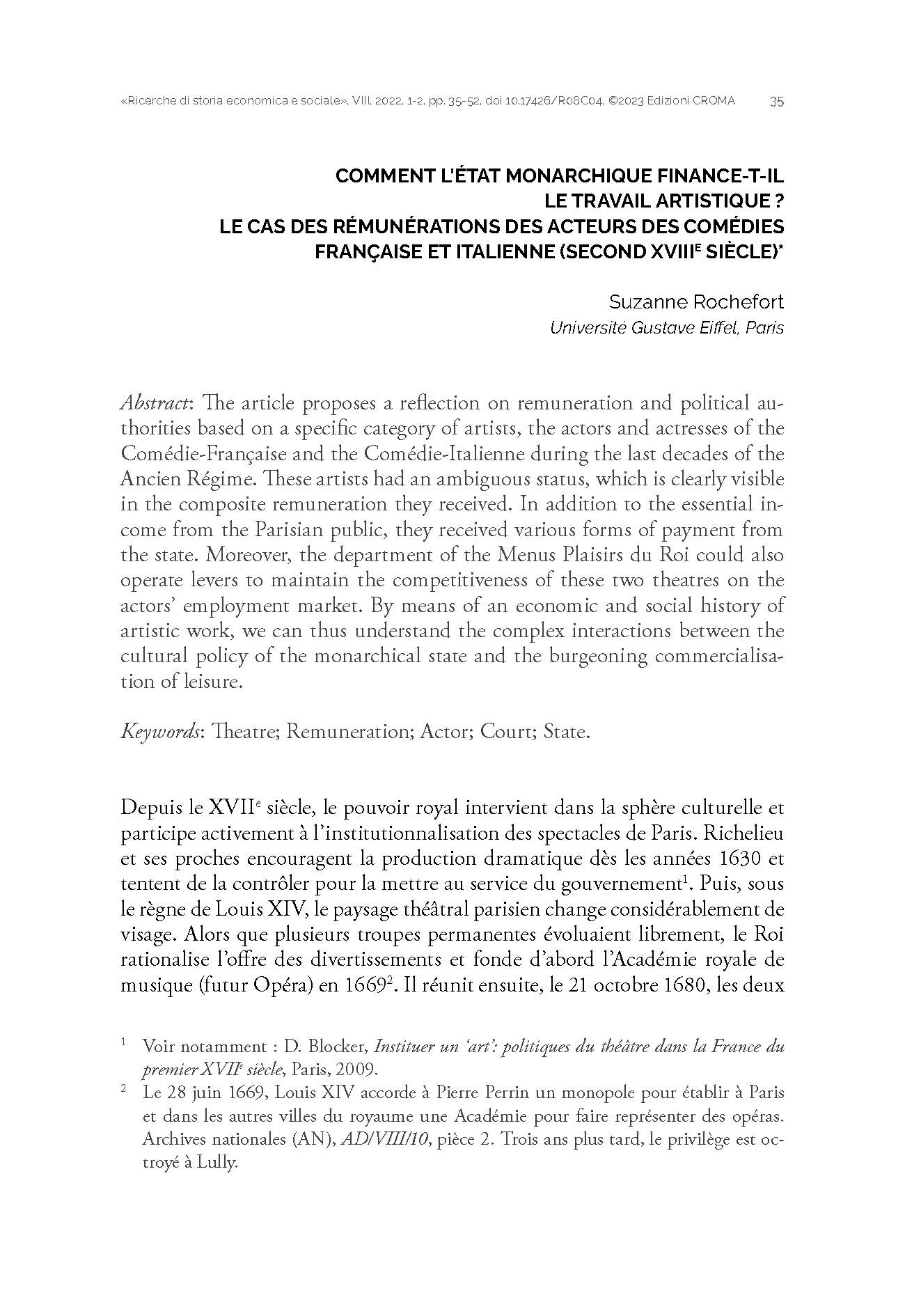Comment l’État monarchique finance-t-il le travail artistique? Le cas des rémunérations des acteurs des Comédies Française et Italienne (second XVIIIe siècle)
0,00 €
Abstract: The article proposes a reflection on remuneration and political authorities based on a specific category of artists, the actors and actresses of the Comédie-Française and the Comédie-Italienne during the last decades of the Ancien Régime. These artists had an ambiguous status, which is clearly visible in the composite remuneration they received. In addition to the essential income from the Parisian public, they received various forms of payment from the state. Moreover, the department of the Menus Plaisirs du Roi could also operate levers to maintain the competitiveness of these two theatres on the actors’ employment market. By means of an economic and social history of artistic work, we can thus understand the complex interactions between the cultural policy of the monarchical state and the burgeoning commercialisation of leisure.

